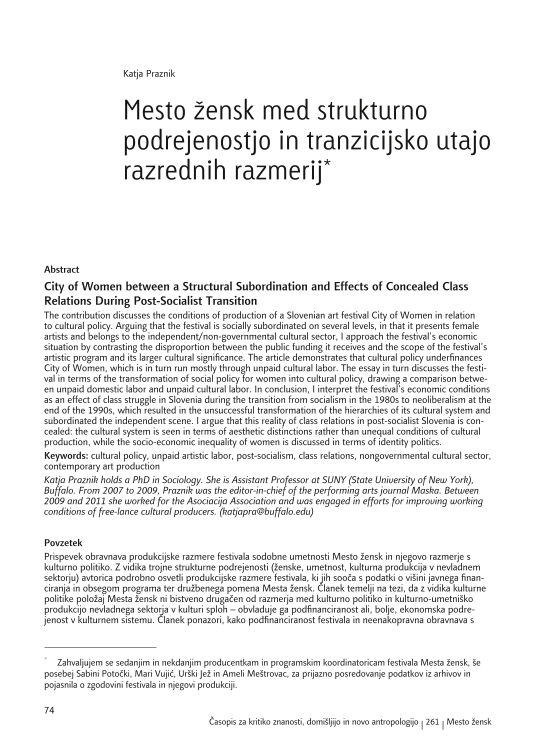The contribution discusses the conditions of production of a Slovenian art festival City of Women in relation to cultural policy. Arguing that the festival is socially subordinated on several levels, in that it presents female artists and belongs to the independent/non-governmental cultural sector, I approach the festival’s economic situation by contrasting the disproportion between the public funding it receives and the scope of the festival’s artistic program and its larger cultural significance. The article demonstrates that cultural policy underfinances City of Women, which is in turn run mostly through unpaid cultural labor. The essay in turn discusses the festival in terms of the transformation of social policy for women into cultural policy, drawing a comparison between unpaid domestic labor and unpaid cultural labor. In conclusion, I interpret the festival’s economic conditions as an effect of class struggle in Slovenia during the transition from socialism in the 1980s to neoliberalism at the end of the 1990s, which resulted in the unsuccessful transformation of the hierarchies of its cultural system and subordinated the independent scene. I argue that this reality of class relations in post-socialist Slovenia is concealed: the cultural system is seen in terms of aesthetic distinctions rather than unequal conditions of cultural production, while the socio-economic inequality of women is discussed in terms of identity politics.




